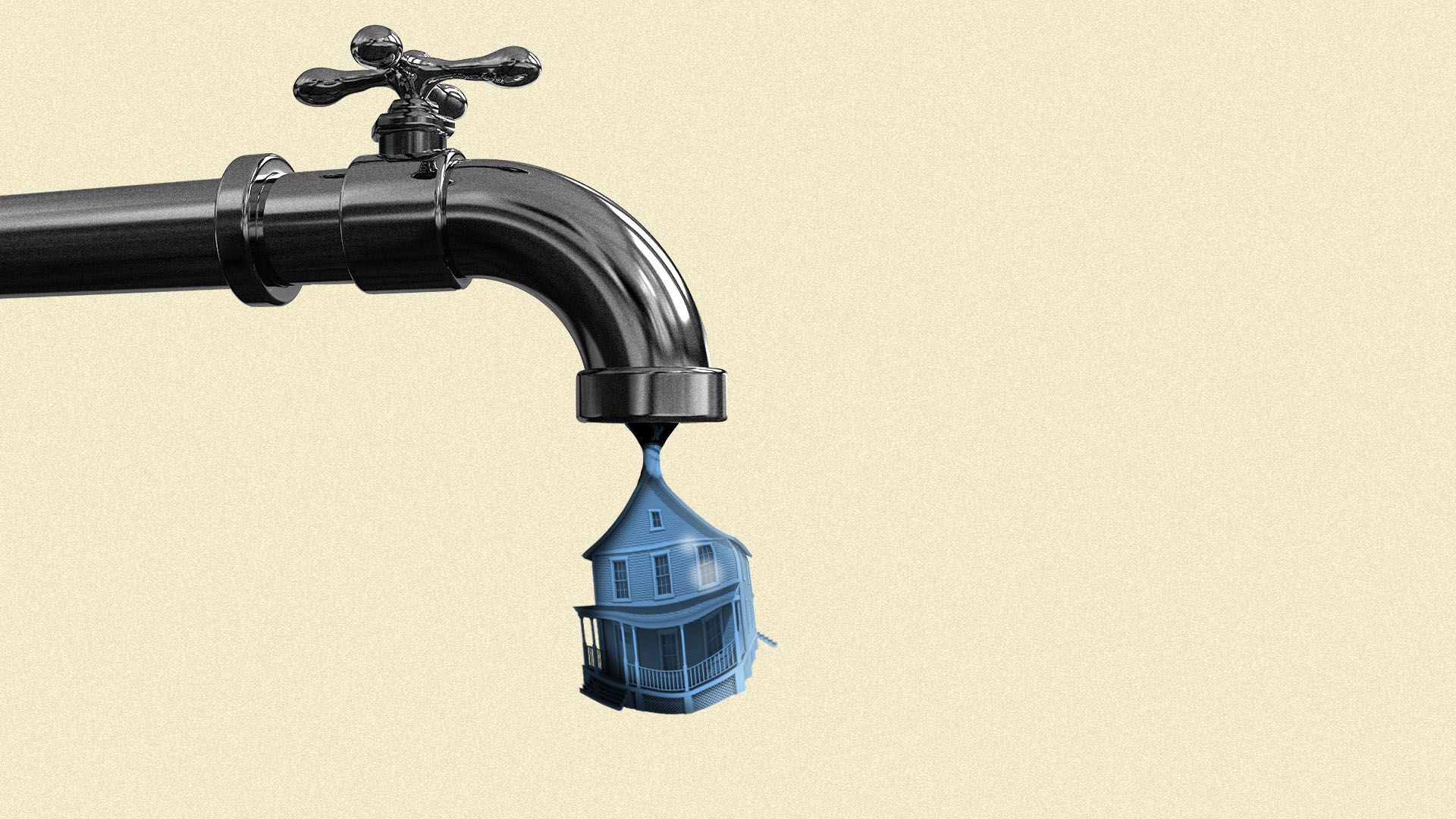America’s New Housing Crisis
Greetings from London, where, thanks to the differences in our common language, almost no one understands the phrase "Did you get bangs?" I thought it might have something to do with hair, but today I learned what it really means. Turns out, it's a question that is applied to baseball players. Naturally, like everything else baseball, it can be charted.
- In this week's issue: A different kind of housing crisis; carbon offsets; abortion; Brexit; Argentine debt; and more. All in 1,566 words, which should take you about 6 minutes to read.
1 big thing: The new housing crisis

Illustration: Sarah Grillo/Axios
Rising house prices don't cause lenders to lose money, or economies to implode. But the bottom rung of the housing ladder has now ascended beyond the grasp of millions of Americans, regardless of whether they want to rent or buy.
Why it matters: When house prices fall too much, the rich and powerful lose money. That, in turn, means central banks around the world will swing into action to try to save the economy. When home prices rise too much, on the other hand, there's no such urgency on the part of policymakers.
The big picture: There just isn't enough housing to go round. Every year the number of U.S. households grows by more than 1 million, while simultaneously somewhere between 300,000 and 400,000 existing housing units are demolished.
- By the numbers: Lawrence Yun, chief economist of the National Association of Realtors (NAR), tells Axios that when fewer than 1.5 million new homes are built in any given year, the national housing shortage only gets worse.
- The number of housing starts rose above an annual rate of 1.5 million in December 2019 — it hadn’t been at that level since 2006. For the first time in over a decade, we had a single month when America’s housing shortage didn’t get worse.
House prices are rising too fast, especially at the entry level.
- A fascinating AEI dataset shows that entry-level houses are worth on average 50% more than they were at the beginning of 2012. That's a significantly faster appreciation than the "move-up" segment of the market, which has risen by 38% over the same timeframe.
- Denver, Seattle and San Francisco have seen entry-level homes rise in price by more than 75% since 2012, while Las Vegas prices have risen 89%.
- A recent NAR press release quoted Yun as saying, "The hope is for price appreciation to slow." That's the kind of language that you often hear from affordable-housing advocates, but it's still startling to hear it coming from the industry.
Context: The cost of building any kind of housing has never been higher, thanks to a confluence of factors. President Trump has slapped tariffs on Canadian lumber (which remain in place even under USMCA), but the much larger cost problem is with skilled labor. Unemployment is low, the labor market is tight, and a lot of undocumented construction workers have moved back to Mexico.
- Rising house prices also exacerbate Nimbyism. The more your house is worth, the harder you're likely to fight against upzoning initiatives that increase the supply of housing in your neighborhood. The fewer the units being built, the more that supply constraint pushes prices up in a vicious cycle (that's great for existing homeowners' wealth).
- "Affordable housing isn’t affordable to build," the National Apartment Association's Greg Brown tells Axios. As America urbanizes, the apartment shortage is growing even starker than the shortage of houses.
The bottom line: Whether you rent or own ultimately matters much less than whether you have a place to live at all. Right now there's no good economic incentive for homebuilders to build new units for Americans shut out of the market.



